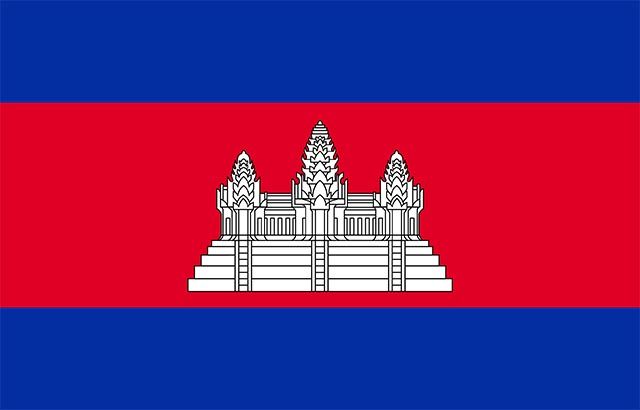INTRODUCTION
Waivers permit a non-citizen to excuse actions that cause the non-citizen to be inadmissible to the United States. In addition, certain waivers excuse certain actions that caused a green card holder to be deportable/removable. Waivers are available before USCIS and the Immigration Court.
I-601A Provisional Unlawful Presence Waiver
If you entered the United States illegally, you cannot get a green card here in the United States even if you are married to a permanent resident or a U.S. citizen. There are exceptions, but illegal entry is a bar to permanent residency in the United States. Your only option at that point is to get an immigrant visa in the U.S. Embassy in your home country.
Prior to March 4, 2013, if you wanted to get a green card, you would have submit an I-130 Petition for Alien Relative from your spouse (green card holder or U.S. citizen) and then upon approval apply for an immigrant visa abroad. But, at the interview in the U.S. Embassy abroad, the consular officer would tell you something that you already knew – that you are inadmissible to the United States based on illegal presence that you accrued in the United States (living in the United States without legal status). You would then file an I-601 waiver to waive the illegal presence. The problem was that you were then stuck in your home country for the next 18 months to two years waiting for the adjudication of this waiver separated from your family and your life here in the United States.
However, since March 4, 2013, you can apply for the I-601A Provisional Unlawful Presence Waiver to get the illegal presence waived before you leave the United States. The I-601A Provisional Unlawful Presence Waiver has become a very popular waiver and tens of thousands of non-citizens have applied for and been granted this waiver and have gotten their permanent residency through an immigrant visa abroad.
Please note that if you have a deportation/removal order, you must first apply for an I-212 Permission to Reapply Waiver before applying for the I-601A Provisional Unlawful Presence Waiver. This process can be lengthy, but well worth it if you can finally get rid of the deportation/removal order and get your permanent residency.
212(h) Waiver (criminal conviction waiver of inadmissibility)
The most commonly used waiver for criminal conduct is known as the 212(h) waiver. This waiver is used in the adjustment process to waive past criminal conduct that makes an applicant inadmissible under INA § 212. The 212(h) waiver can also be used upon entry into the United States. In order to qualify for a 212(h) waiver, you must prove show that the denial of the waiver would result in extreme hardship to spouse, parent, or child of a citizen or legal permanent resident of the United States.
212(h) waives crimes that make an alien inadmissible under § 212(A)(i)(I), (B), (D), and (E) or subsection (a)(2) and subparagraph (A)(i)(II) of such subsection insofar as it relates to a single offense of simple possession of 30 grams or less of marijuana. The 212(h) waiver is filed on the form I-601, typically in conjunction with your application for adjustment of status.
212(i) Waiver (immigration waiver of fraud grounds of inadmissibility)
This waiver is used to waive grounds of inadmissibility related to fraud in connection with the immigration process. The 212(i) wavier pardons conduct that make a non-citizen inadmissible under § 212(a)(6)(C). To qualify for the 212(i) wavier you must prove that the denial of the waiver would result in extreme hardship to spouse or parent of a citizen or legal permanent resident of the United States. Please note that the 212(i) waiver does not include children as qualifying relatives for hardship. The 212(i) waiver is filed on the form I-601, typically in conjunction with your application for adjustment of status.
212(a)(9)(B) Waiver (illegal presence waiver of inadmissibility)
This waiver is used to waive grounds of inadmissibility related to illegal presence in the United States. If you have been in the United States for more than 180 days and you did not have a legal status and you exited the United States, you will have a three year bar to return to the United States. If your illegal presence was over one year, then you will have a ten year bar to return to the United States.
To qualify for the 212(a)(9)(B) wavier you must prove that the denial of the waiver would result in extreme hardship to spouse or child of a citizen or legal permanent resident of the United States.
I-212 Permission to reapply (after deportation)
If you were previously removed from the U.S., you are inadmissible and may not be re-admitted to the U.S. for a specified period of time. However, you may apply for permission to reapply for admission. To apply for an I-212 Permission to Reapply for Admission waiver, you must submit a From I-212 together with the appropriate supporting documentation and filing fee to USCIS.
You may apply for an I-212 waiver in conjunction with an immigrant or nonimmigrant visa application. In many instances, you may seek permission to reapply for admission in conjunction with the filing of a waiver application based on a specific ground of inadmissibility. The I-212 application, if granted, would waive the prior removal.
Applications are considered on a case-by-case basis, and all relevant factors are considered, such as:
- The basis for your deportation/removal
- The recency of your deportation/removal
- The length of your residence in the U.S.
- Your moral character
- Your respect for law and order
- Evidence of your reformation and rehabilitation
- Your family responsibilities
- Whether you have any other inadmissibility to the U.S. under other sections of law
- Whether your family members would suffer hardship if the waiver was denied
- The need for your services in the United States
237(a)(1)(H) Waiver (immigration fraud waiver of deportability in the Immigration Court)
This waiver is used to waive grounds of inadmissibility that in turn make you deportable/removable related to fraud in connection to the immigration process. To qualify for the 237(a)(1)(H) wavier you must prove the following:
- that you are the spouse, parent, son or daughter of a citizen or legal permanent resident of the United States; and
- that you were in possession of an immigrant visa or equivalent document and was otherwise admissible to the United States at the time of such admission except for those grounds of inadmissibility under paragraphs (5)(A) (lack of a labor certification) and (7)(A) (lack of a valid immigrant visa or entry document) of § 212(a) which were the direct result of that fraud or misrepresentation.
Please note that this waiver does not require demonstration of extreme hardship to the qualifying relative. The waiver is purely a matter of discretion before the Immigration Judge. There is no official form or application. This waiver is only available for non-citizens in deportation/removal proceedings.
212(c) Waiver (criminal conviction waiver of inadmissibility in the immigration court)
In 1997, the 212(c) waiver was abolished. Nevertheless, this waiver still remains viable and available to non-citizens who obtained their green card before 1997 and committed crimes before 1997. Despite the fact that this waiver was abolished over 24 years ago, the waiver is still a viable option in certain circumstances. The firm recently obtained a 212(c) waiver for one of our clients in 2019. This waiver is only available for non-citizens in deportation/removal proceedings.
EXTREME HARDSHIP
Most waivers are dependent upon a showing that the bar imposes an extreme hardship on a qualifying family member. Congress provided this waiver but limited its application. By such limitation it is evident that Congress did not intend that a waiver be granted merely due to the fact that a qualifying relationship existed. The key term in the provision is “extreme” and thus the bar will only be removed in cases of real actual or prospective injury to the United States national or lawful permanent resident. Common results of the bar, such as separation, financial difficulties, etc., in themselves are insufficient to warrant approval of an application unless combined with much more extreme impacts.
Extreme hardship can be demonstrated in many aspects of your qualifying family member’s life such as:
- HEALTH – Ongoing or specialized treatment requirements for a physical or mental condition; availability and quality of such treatment in your country, anticipated duration of the treatment; and whether a condition is chronic or acute, or long-term or short-term.
- FINANCIAL CONSIDERATIONS – Future employability; loss due to sale of home or business or termination of a professional practice; decline in standard of living; ability to recoup short-term losses; costs of extraordinary needs such as special education or training for children; costs of care for family members (i.e., elderly and infirm parents).
- EDUCATION – Loss of opportunity for higher education; lower quality or limited scope of education options; disruption of current program; requirement to be educated in a foreign language or culture with ensuing loss of time for grade; availability of special requirements, such as training programs or internships in specific fields.
- PERSONAL CONSIDERATIONS – Close relatives in the United States and/or your country; separation from spouse/children; ages of involved parties; length of residence and community ties in the United States.
- SPECIAL FACTORS – Cultural, language, religious, and ethnic obstacles; valid fears of persecution, physical harm, or injury; social ostracism or stigma; access to social institutions or structures.



